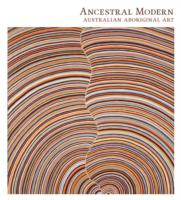- ホーム
- > 洋書
- > 英文書
- > Psychology
Full Description
The book contains reflections from Eva Almassy, Jacqueline Amati-Mehler, Pina Antinucci, Antal Bokay, Julia Borossa, John Clare, Ferenc Erós, Susan Haxell,Eva Hoffman, Kathleen Kelley-Lainé, Leon Kleimberg, W. Gordon Lawrence, Judit Mészáros, Gershon J. Molad, George Pick, Rachel Rosenblum, Tamara Stajner-Popovic, Riccardo Steiner, Judit Szekacs-Weisz, Judith E. Vida, Shula Wilson, and Ali Zarbafi.
Lost Childhood and the Language of Exile invites the reader to enter a territory which is not only multilingual but multidimensional: defined and shaped by history, politics, economy, and sociocultural transformations. The contributions give important insights on the psychodynamic processes involved in working with, and being part of, exiled and immigrant populations.
The majority of the stories take as their base the upheaval caused by the Second World War but their stories are still, sadly, relevant today with the ongoing plight of refugees the world over. By presenting their experiences, the contributors provide a vital record of what it means to leave your homeland behind, to make a new life in a new land, and to live and work in a second tongue. The aim was, and is, to provide stimulus for further thinking and research. Two contributors, Ali Zarbafi and Shula Wilson, took up that challenge and we were delighted to publish their contribution to this debate in their edited work, Mother Tongue and Other Tongues: Narratives in Multilingual Psychotherapy (2021).
Contents
Preface in Three Voices
Judit Szekacs-Weisz
Kathleen Kelley-Lainé
Judit Mészáros
Introduction
John Clare
1. Mother Tongue and Other Tongues
How to be a Bi-lingual Psychotherapist
Judith Szekacs-Weisz
Languages of Loss, Languages of Connectedness
Julia Borossa
From Cottage Cheese to Swiss Cottage
Leon Kleimberg
2. Lost and Found in Translation
Between Worlds, Between Words
Eva Hoffman
I Need to Hide in my Foreignness, Will You Let Me?
Pina Antinucci
Another Tongue, Another Voice
Susan Haxell
The Metaphors We Live By
Kathleen Kelley-Lainé
3. Analysts in Transition
Marginality and the Language of Allusions
Ferenc Erós
'Budapest School' A School? Yes and No.
Judit Mészáros
Analysts in Transition, Analysis in Translation
Riccardo Steiner
4. Migration, Loss and Memory
Languages of the Inner Exile
Antal Bokay
Immigration Loss and Memory
Jacqueline Amati-Mehler
Getting Away from the Mother Tongue
John Clare
Childhood Lost and Found
Rachel Rosenblum
5. Trauma
The Politics of Exile
Ali Zarbafi
In Times of Troubles
George Pick
The Impaired Tongue
Shula Wilson
Childhood in a Time Tunnel
Tamara Stajner-Popovic
6. Words and Dreams
Writing in an Adopted Language
Eva Almassy
The Language of Social Dreaming and Childhood
Gordon Lawrence
Notes on Holding Exile in the Dialogue Between Analysts
Judith E. Vida and Gershon J. Molad







